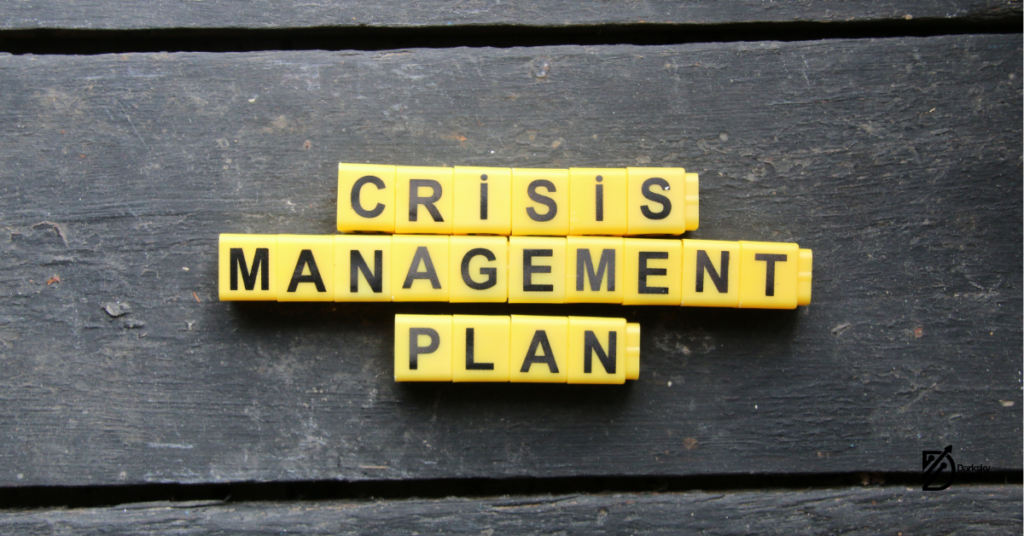Using Social Media to Master Crisis Communication
Last Updated: 10 February 2025

In today’s fast-moving digital world, businesses must be prepared for unexpected challenges. A single crisis can escalate within minutes, spreading across social media and threatening your brand’s reputation. This is why crisis communication is a vital part of any business strategy. The ability to respond quickly, transparently, and effectively can mean the difference between maintaining trust and losing customer confidence.
Social media has transformed the way businesses handle crises. Platforms like X, LinkedIn, and Facebook allow companies to react in real time, address concerns, and shape the narrative. In this blog, we’ll explore why crisis communication is important, the best crisis communication strategies to implement, and how to leverage crisis communication and social media to protect your brand’s credibility.
Preparing for a Crisis: The Foundation of Effective Communication
A well-structured crisis communication plan is essential for any business. Waiting until disaster strikes to figure out how to respond is a recipe for chaos. Instead, companies should proactively develop a strategy that outlines key actions, assigns responsibilities, and establishes clear messaging guidelines.
The first step in preparation is monitoring social media channels consistently. By keeping an eye on mentions, comments, and trends, businesses can detect potential issues before they spiral out of control. With this in mind, advanced AI-driven tools can track sentiment and highlight emerging threats in real time.
Additionally, businesses should identify spokespersons who will be responsible for public communication. Whether it’s the CEO, a PR specialist, or a social media manager, having a trained representative ensures that messages remain consistent and professional.
How to Use Social Media During a Crisis
When a crisis hits, social media becomes the frontline of crisis communication and reputation management. Customers turn to platforms like X and TikTok for immediate updates, and businesses must respond swiftly and strategically.
The first rule is to acknowledge the crisis as soon as possible. Silence can be interpreted as negligence or avoidance, making the situation worse. Even if all the details are not yet available, a simple statement reassuring customers that the issue is being addressed can prevent misinformation from spreading.
Messaging should always be clear, concise, and transparent. Avoid vague corporate jargon or defensive statements. Instead, focus on factual, empathetic responses that show accountability.
Crisis communication and social media go hand in hand, but it’s crucial to use the right platforms. Twitter is excellent for rapid updates, while LinkedIn is more suitable for professional audiences. Businesses should also leverage Instagram Stories and Facebook Live for real-time updates when necessary.
Best Practices for Crisis Communication on Social Media
Adopting the right crisis communication best practices ensures that businesses maintain credibility during difficult times. One key approach is engaging with audiences proactively. Responding to customer concerns in the comments section, addressing FAQs through posts, and using pinned tweets or featured stories to highlight key updates can help manage the situation effectively.
Another crucial practice is fact-checking before posting. In the rush to respond, misinformation can easily spread, making the crisis worse. Ensure that every statement released is accurate and aligned with official sources.
Transparency is equally important. Businesses should avoid deleting negative comments unless they violate community guidelines. Instead, acknowledge concerns and provide constructive responses. This demonstrates accountability and fosters trust.
Learning from Real-World Crisis Management Success Stories
Many global brands have successfully navigated crises through strategic use of social media. For example, when KFC faced a supply chain failure that led to restaurant closures, their humorous yet professional response on Twitter turned a potential disaster into a PR win. By admitting their mistake and keeping customers informed, they maintained goodwill despite the setback.
Similarly, Airbnb’s response during the COVID-19 pandemic showcased effective crisis communication strategies. The company quickly addressed host and guest concerns, offering flexible cancellation policies and transparent updates through social media, earning customer loyalty in the process.
Avoiding Common Mistakes in Crisis Communication
While businesses strive to manage crises effectively, certain pitfalls can make matters worse. One of the biggest mistakes is delayed response. In today’s digital age, waiting hours to address an issue can allow misinformation to spread uncontrollably.
Another misstep is inconsistent messaging. When different departments release conflicting statements, confusion arises, damaging trust. Having a unified communication strategy ensures consistency across all platforms.
Some companies rely too heavily on automated responses, which can come across as impersonal. During a crisis, customers want to feel heard and reassured by real human interactions. Brands should balance automation with genuine engagement to maintain trust.
The Future of Crisis Communication in 2025
As technology evolves, so does crisis communication in social media. Businesses now have access to AI-powered sentiment analysis, allowing them to detect and address potential crises before they escalate. Chatbots with human oversight can assist in managing inquiries efficiently, while live video updates help brands connect with their audience in real time.
Furthermore, decentralised platforms like blockchain-based social media networks are emerging, offering new ways to handle transparency and credibility in crisis situations. Companies that stay ahead of these trends will be better positioned to navigate future challenges effectively.
Build a Stronger Social Media Strategy with Darksky Digital
At Darksky Digital, we understand the power of social media in shaping your brand’s reputation. While we don’t specialise in crisis communication and reputation management, our social media crisis communication plan ensures that your brand is prepared for unexpected challenges.
Our social media packages include tailored crisis response strategies, proactive monitoring, and expert guidance on handling critical situations online. Whether you need a solid crisis communication plan or ongoing support, we’re here to help you navigate the fast-paced digital landscape with confidence.
Don’t wait for a crisis to strike. Partner with Darksky Digital to strengthen your social media presence and safeguard your brand’s reputation today.
Written By Laila Soules
Laila Soules is the visionary Founder and CEO of Darksky Digital, a Growth & Performance Marketing Agency based in South Africa. With a rich background in digital marketing, Laila has been instrumental in driving business growth through innovative strategies and data-driven solutions.
Under her leadership, Darksky Digital has emerged as a trusted partner for businesses seeking to enhance their online presence and achieve measurable results. Her expertise spans various facets of digital marketing, including search engine optimization (SEO), pay-per-click advertising (PPC), social media marketing, and content strategy.
Her strategic insights and hands-on approach have consistently delivered exceptional outcomes for clients across diverse sectors. Beyond her professional endeavors, Laila is dedicated to mentoring aspiring marketers and contributing to the growth of the digital marketing ecosystem in South Africa.

